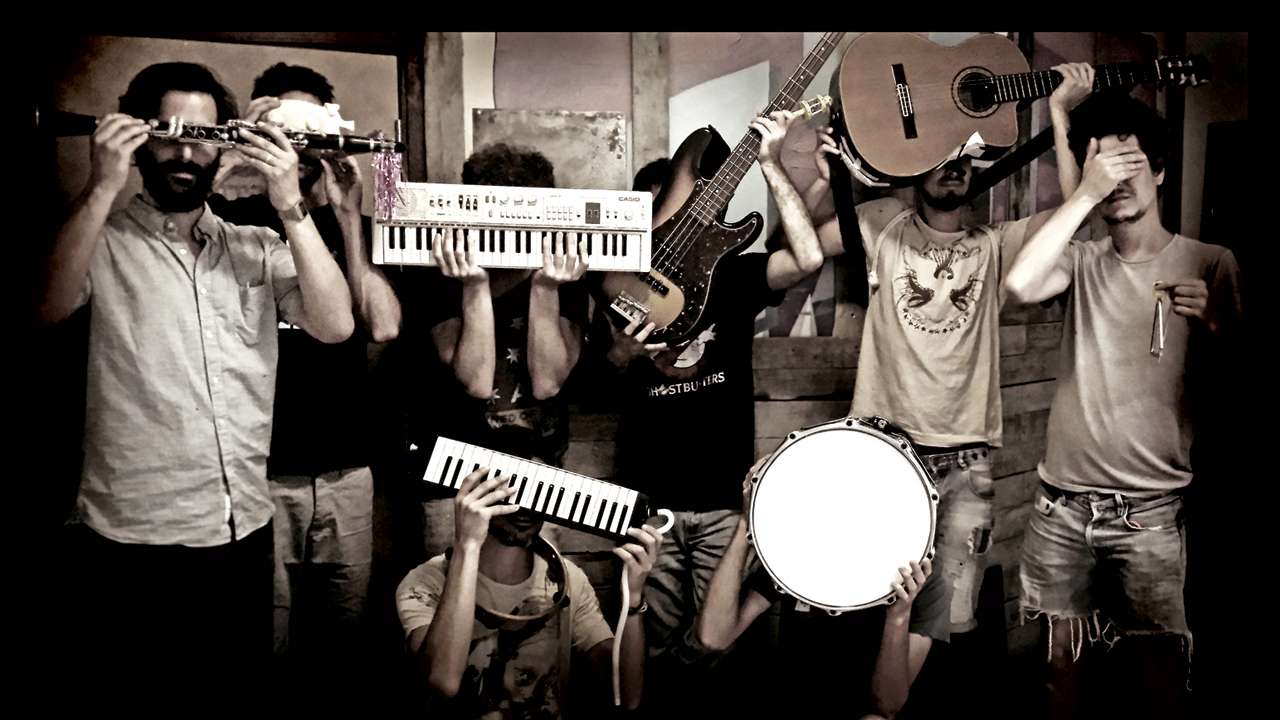
The soulful sound of the violin fills the room, then the guitar; the hang drum (a Swiss rhythm instrument) picks up the beat and one by one the musicians of the orchestra join in adding to the melody – while the sounds may be familiar, the sight is nothing short of extraordinary. The Blind Orchestra, named so since all the musicians play music blindfolded, is a magical innovation in music that takes improvisation and coordination of sound to a whole new level.
"I have often found that I play better music with eyes closed. So I wanted to see what it would be like to have a whole orchestra play that way. Often, without sight, you connect to the music more," says Dov Balu Rosen, drummer and founder of the Blind Orchestra, who curates the musicians for each set, adding that further research into the field led to the discovery of the fact that cutting off the sense of sight gives musicians a more intense experience.
Any communication is between the conductor – the only member not blindfolded – and musicians alone. He taps them once to start playing and again to stop. Often, two or more musicians play at once, weaving their sounds together, only by ear, to form beautiful improvised harmonies. The musicians are not given any brief or definite composition to play, making the entire performance purely improvised. Rehearsals merely find them playing together to familiarise themselves with each other's styles.
Having started this experimental initiative five years ago, Balu has expanded from a trio of musicians and conductor to a set that consists at least of seven to eight members, often going up to a dozen. Always on the lookout for new talent – both vocalists and instrumentalists – the curator admits to having a few favourites that he keeps going back to.
Ben Dagovitch, who plays the hang drum, for instance, has been playing for his concerts off-and-on for over four years. "I would come down to Goa from Israel quite often, first as a tourist, and then as a part of the rich music scene there. That's how I met Balu; he asked me to play for them for a concert, and I have been a part of several concerts since then," says Dagovitch, who feels that the orchestra has enriched his experience in the field of music, not just through its experimental style, but also because of the many musicians he has met. "The ones who stand out include a Hindustani classical singer, a bansuri player and an African house musician."
Another less-known instrument that has featured in Balu's orchestras for the past year is the didgeridoo. Instrumentalist Manas Chowdhury, who also plays the bass guitar, says that meeting Balu in Manali – where they spent hours just jamming together – opened up new doors for him as a musician. "This is unknown territory for me, and it's a floaty feeling you get when you are blindfolded, just waiting for the conductor to tap you, so that you can play your part," he smiles.
Also, being blindfolded means that one is barely aware of the audience. It's you, your music and the other musicians that you are playing with. "After the first few minutes, the audience ceases to matter. You are faintly aware that they are there, but you can play much more freely, because that is hardly a factor that you think about," explains Dagovitch.
Though his project is now a success with a niche of its own, Balu continues to look for ways to improve. "For me, the Blind Orchestra has been a very long experiment,and I keep thinking of ways to make it better and better," he states.